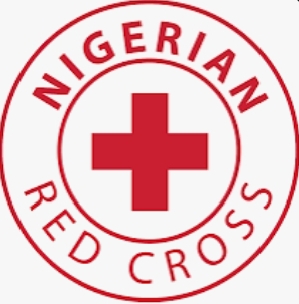Olufunmi Zainab
The Nigerian Red Cross Society (NRCS) has called on the governments of five states in the country to declare a state of emergency in the health sector.
The society said the call became necessary to address the growing threat of malnutrition affecting vulnerable communities across the five states in Nigeria.
The humanitarian initiative, however, promised to provide targeted nutritional support to children, pregnant women, and nursing mothers in the concerned states, which are: Katsina, Niger, Sokoto, Yobe, and Zamfara.
It’s President, Oluyemi Adetayo, in his speech at the workshop on Tuesday in Kano, said that the declaration of emergency in the sector would tackle what he described as the “silent crisis” of malnutrition.
According to him, the appeal is aimed at implementing state-specific interventions to address the alarming rise in malnutrition, particularly in communities affected by food insecurity, conflict, and climate-related challenges.
“We are launching this appeal since malnutrition is deteriorating, and people are unable to meet basic nutritional needs,” he said.
“Visits to public hospitals, revealed a surge in illnesses linked to poor nutrition, with serious implications for physical and cognitive development in children.
“At times, due to a lack of essential nutrients in some children, they tend to have poor character formation, which alone makes it an emergency.
On his part, the Acting Director of Healthcare at NRCS, Dr Aminu Abdullahi, noted that malnutrition remains one of the most under-reported health issues in the country.
“There are thousands of severely malnourished individuals, especially children. NRCS operates as a voluntary organisation and auxiliary to the government, with a focus on community participation and mobilisation,” he said.
He further explained that increasing cases of malnutrition are often linked to other health challenges, such as diarrhoea, malaria and the broader impact of insecurity.
Abdullahi added that NRCS engaged communities through awareness campaigns, nutritional screenings, and data collection to identify malnourished individuals.
“In the North-East and North-West regions alone, about 5.4 million children are malnourished out of which 1.8 million are severely malnourished.
“Our aim is to send response across nine states of Adamawa, Borno, Benue, Bauchi, Sokoto, Katsina, Niger, Yobe and Zamfara.
“The NRCS has Mothers’ Clubs in communities, who have been trained to identify malnourished children, promote use of locally available food resources, and refer severe cases to hospitals and follow up with discharged patients to ensure recovery and prevent relapse,” Abdullahi said.
He identified insecurity, displacement, poor access to farmland, unsafe water sources, and the prevalence of malaria as complicating the malnutrition crisis.





